The following was originally given as a talk to the Calgary Catholic Homeschooling group.
My wife and I have been teaching our kids at home for about eight years. I recall vividly when the idea of educating at home turned into a conviction. We were back in Saskatchewan, newly married, newly graduated, and preparing for graduate study in England. It was June and the days were long. My wife had recently completed her education degree and we were dreaming about how we would form our own future children. A small group of us met at a friend’s place at the edge of the city. We read together C.S. Lewis’ Abolition of Man.
On that June evening, it is not as though this was the first time we had given thought to how we would raise our children. Other people and books had formed our thinking. There was Hilda Neatby, the Canadian and Presbyterian version of Alan Bloom. Her books date from the 1950s, when John Dewey’s influence was at its height, and anticipate themes later sensationalized in The Closing of the American Mind. Dorothy Sayer’s famous essay, “The Lost Tools of Learning,” thrilled, as did Plato’s Republic, as did the books by Charlotte Mason that Anna and I read out loud together. Probably we were simply dry tinder; any number of books could’ve ignited our imaginations, but it was Lewis who threw down the first match.
I do not think every family should “homeschool”. I am grateful, I would like to add, for the seeds of faith that were planted in my young heart in the two Catholic schools I attended during my elementary years in Saskatchewan. The Church defends vigorously the natural right of parents to educate their children, and I am convinced that this may be done well among a wide variety of models. And yet, eight years into the project and our family has found homeschooling to be a beautiful means to form our children in a Catholic culture.
What makes for a Catholic culture? To build a healthy culture requires many ingredients. We need enchanting liturgies, noble art, a functioning intelligentsia, evangelical clergy, and just laws. But from the point of view of the Church, even more than these we need something more basic. From Leo XIII on, modern popes have insisted with ever-growing vigor that the health of the Church, like the health of civil society, depends upon that kingdom that is older than the Pharaohs, tougher than the nation state, more universal than the United Nations, more reliable than welfare stamps, more loving than anti-bullying clubs, and which is reborn each time a man and a woman proclaim those rash and romantic words: I do.
Those two words are our best defense against barbarism. Any culture that hopes to perpetuate itself must learn to transmit its treasure to its young. Over the last 50 years homeschooling has already proven itself a credible alternative to public and private schools; over the next 50 I predict that homeschooling will serve as a catalyst for rebuilding Catholic culture.
For the remainder, I’d like to show how the homeschooling family, as an expression of the domestic church, is uniquely situated to advance the project of Catholic culture. Just as the Catholic Church has four marks – one, holy, catholic, apostolic – so also can a Christian homeschooling family live out its educational mission by participating in these four qualities.
Just as the members of the Church are one through a common baptism and profession of faith, so also is the domestic church made one through the love of one man and one woman. A homeschooling family helps build Catholic culture by building up this unity within the family.
A couple of years ago some close friends of ours decided that they too would try the grand experiment. As you know, it is not for the faint of heart. How will I keep the kids busy? Will I know enough chemistry? What will our relatives say? And, by the way, can a homeschooled kid get into college? These questions and a dozen like them jump into the minds of parents considering the big move.
Well, for these friends of ours, what pushed them to get wet was a night at their church’s youth group. It was something of a family night. The church gym was filled with kids and parents all bustling around. One of the families present was homeschooling. My friend couldn’t take his eyes off of them. He watched how their children played with each other as friends; yes, friends who were used to spending all day together. He saw the parents speak to their kids; eye met eye; it was different from how he spoke to his. What hit him above all else was the manifest unity in this home. And he wanted it for his family too. “I wanted ours to be unified like that,” he told me; and so they jumped. That was about five years ago. And today that family, for me at least, provides a model for how a household can work together, on their property, in earning a common wage, and in educating kids.
Not everyone wants the family to be unified in this way. In fact, the farther governments slide toward totalitarianism, the less they will tolerate strong families. The logic is not difficult to follow. The more the state sees itself as the only legitimate political actor, the more that the state sees its aim as the imposition of, say, universal equality, even an equality of unbridled freedom, the more it has to target quasi-political associations. As the Marxist theory goes: as family recedes, as parents get out of the way, equality will finally advance.
The second quality of the Church is its holiness. In the biblical mind to be holy is to be set apart for some work. What is the distinctive work of the family? Obviously, it is bringing forth children. Monks and nuns can’t do that. Here again I think the homeschooling family is particularly suited to building up Catholic culture. A homeschooling family helps strengthen Catholic culture by building up an island of holiness within their parish.
Pope Benedict XVI often reflected on this theme. During his pontificate he constantly returned to the crisis of faith through which the West is suffering and proposed models for its recovery of faith. Even his papal name preached a sermon on this theme. Benedict predicted, to the consternation of some, that we would shrink before we could grow. Too many of the habits of piety had been lost, too many of the principles of free thought had been forgotten, too many of our institutions compromised for Christians to hope for a linear recovery. No, the Church in the West would have to take the longer road of suffering and purgation.
Some criticized Benedict for being overly negative. Some have said that his counsel has been one of despair, or charged that he is asking Christians to hide away in ghettos. It seems to me, rather, that he was simply expressing a basic truth: you can’t give what you haven’t got. In order to be salt of the world, Christians would need to regain their distinctive savor. What Benedict proposed is that Christians needed to form Islands of Holiness. Just as Benedict of Nursia’s sons had to regroup during the dark ages after the collapse of Rome, so also can Christians today come together in small groups to relearn the habits of piety, of modesty, of chastity, and of sanctity; only from that position of strength can we then turn again to the world.
How can a homeschool form an island of holiness?
When you homeschool every parent can be a principal. So, in your school, if you want Latin you do not need to convince a board, you can just open up Wheelock; if you want to celebrate Feast Days with gusto, you do not need to convince a committee, you can just find other families and invite them for a party; if you want to enforce a dress code, buy modest clothes; if you want your children to learn fasting, serve fish on Fridays. Teach chant, put on a Shakespeare play, take your kids on pilgrimages, say a daily decade, let them read the classics, and meet up with other like-minded parents. I say, in the spirit of Benedict: embrace the bubble! When you teach at home you can form a subculture. Your family will attract others. Islands need to be populated.
This leads to the domestic church’s and the homeschooling family’s third attribute: catholicity. Holiness does not in principle exclude others. The Church is Catholic in that it is universal. It embraces all who wish to align themselves with her creed. For every family, this openness is expressed first of all in the openness to new life.
We knew a homeschooling family whose parents could not have any children of their own. This was a cross. When we knew them, they already had more than our five. They had come to know one of the single mothers from whom they had adopted a child. And that unwed mother kept having more kids. This homeschooling family decided that they would keep adopting her children. And the kids kept coming, year after year. After a few years, the wife, now a homeschooling mom of a large brood began to think twice before answering the phone! She told us once that she didn’t realize before they started adopting in this way what “openness to life” could mean.…
Not all families are called to such heroism, but we are all called to embrace the profound intrusion upon our ego that is a new life. Children, by their irresistible otherness, by their stubborn resistance to our plans and schedules and sleep, by their generous love, by their friendships, by their neediness, naturally draw a homeschool family into a larger web of families.
You don’t need to have a large family to be “catholic”. But insofar as homeschooling habituates parents and siblings to make room for each other, they win opportunities to practice charity. By the subordination of their finances and their time and their sweat to the great project of educating their children, they are particularly suited to the building up Catholic culture in our time through embracing new life and nurturing the children that come to them.
I conclude that insofar as a family manifests unity, sanctity, and universality, it will automatically and without effort be apostolic. People will come to you: Are those all your children? You sure have your hands full? What are you doing out of school in the afternoon? As St. Peter said to the early Christians, let us always be ready to give a reasonable reply (1 Peter 3:15).




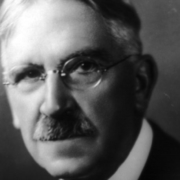
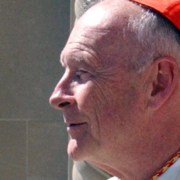
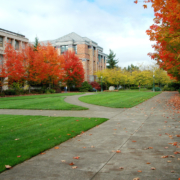
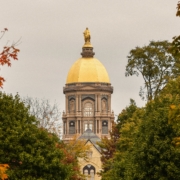 Anthony Melone on Unsplash.com
Anthony Melone on Unsplash.com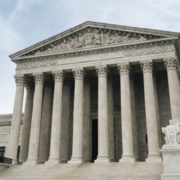

 Photo by Debby Hudson via Unsplash
Photo by Debby Hudson via Unsplash